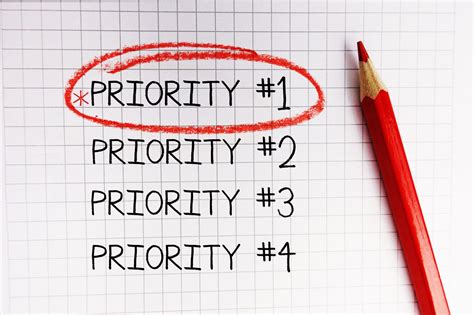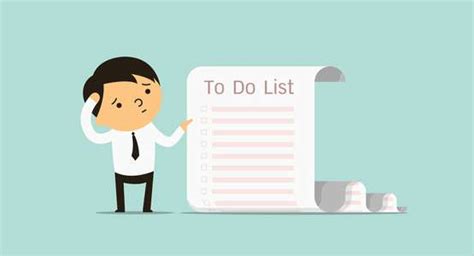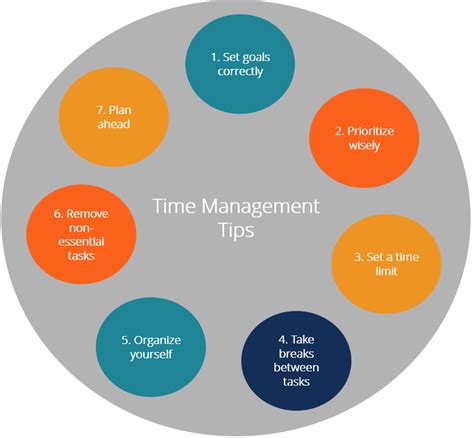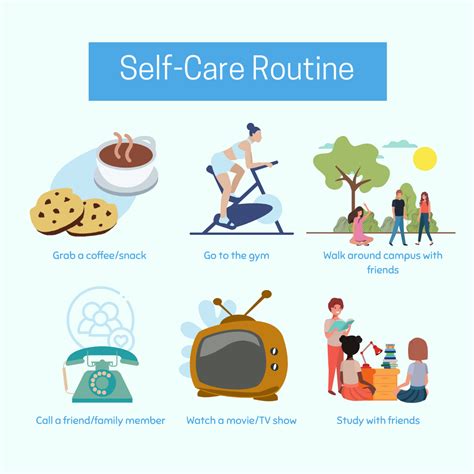In this fast-paced world where time is a precious resource, mastering the art of time allocation is the key to unlocking your potential and achieving high levels of productivity. From redefining your priorities to implementing effective strategies, there are countless ways to optimize your time utilization and accomplish more in less time.
1. Prioritize with Purpose: Identify the tasks that contribute directly to your goals and focus your energy on accomplishing them first. This strategic approach ensures that you maximize your efforts on activities that truly matter, enabling you to accomplish more in less time.
2. Utilize Time Blocking: Segmenting your day into designated time blocks for specific tasks allows you to concentrate fully on one objective at a time. By immersing yourself in a single task, you enhance your focus, eliminate distractions, and significantly improve your overall efficiency.
3. Embrace the Power of Delegation: Recognize that you cannot do everything alone. Delegate tasks to competent individuals, trusting their abilities to execute them efficiently. By delegating responsibilities, you free up time for more critical tasks while fostering a sense of collaboration within your team.
4. Employ Technology Wisely: Leverage the power of modern technology to automate repetitive tasks and streamline your workflow. Whether it's using project management software or utilizing time tracking apps, embracing technology allows you to optimize your productivity and stay organized.
5. Break Tasks into Manageable Chunks: Overwhelm can be a productivity killer. Break down complex tasks into smaller, more manageable parts. This not only makes them less daunting but also allows you to focus on one step at a time, ensuring a higher level of concentration and efficiency.
6. Emphasize the 80/20 Rule: The Pareto Principle states that 80% of your results come from 20% of your efforts. Identify the tasks that yield the greatest outcomes and prioritize them accordingly. By focusing on the high-impact activities, you can maximize your productivity and achieve significant results.
7. Minimize Distractions: Eliminate or minimize distractions that hinder your progress. Create a dedicated workspace, turn off notifications, and establish clear boundaries to limit interruptions. By removing distractions, you create an environment conducive to focused work and heightened productivity.
8. Practice Effective Time-bound Communication: Efficient communication is the cornerstone of effective time management. Set clear time limits for meetings, utilize concise communication channels, and establish a culture of prompt response. By streamlining your communication processes, you free up valuable time for important tasks.
9. Take Regular Breaks: Recognize the importance of taking breaks to recharge and rejuvenate. Incorporate short breaks into your schedule, allowing yourself time to rest and reset. By giving yourself moments of relaxation, you can maintain your energy levels and sustain long-term productivity.
10. Continuously Learn and Adapt: Stay open to new techniques, tools, and strategies for time management. Invest in personal development, learn from your past experiences, and adapt your approach based on what works best for you. By constantly refining your time management skills, you can unlock your full potential and achieve optimal productivity.
By implementing these ten powerful strategies, you can master the art of time allocation and experience a remarkable improvement in your productivity. Embrace these techniques, adapt them to your unique circumstances, and watch as you unlock your true potential to accomplish more than you ever thought possible.
10 Strategies for Maximizing Your Efficiency and Output
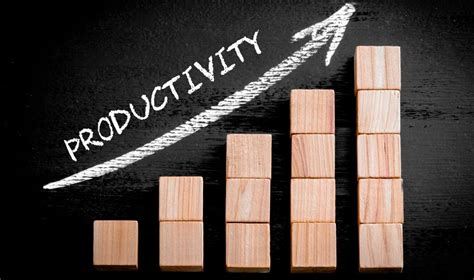
Discovering the most effective ways to manage your time and increase your productivity is crucial in today's fast-paced world. By implementing these 10 proven techniques, you can dramatically enhance your efficiency and output, allowing you to achieve your goals with greater ease and satisfaction.
1. Harness the Power of Prioritization
Begin by identifying the most important tasks or objectives that will have the greatest impact on your overall success. Prioritize these tasks accordingly and allocate your time and resources accordingly.
2. Streamline Your Workflow
Eliminate any unnecessary steps or processes in your work routine. Look for ways to optimize your workflow and reduce any inefficiencies or bottlenecks that may be hindering your productivity.
3. Master the Art of Delegation
Recognize that you can't do it all alone. Delegate tasks that can be handled by others, allowing you to focus your time and energy on high-value activities that truly require your expertise.
4. Set Clear and Realistic Goals
Establish specific, measurable, achievable, relevant, and time-bound (SMART) goals for yourself. By clearly defining what you want to accomplish, you can better manage your time and stay on track.
5. Make Use of Technology
Take advantage of various productivity tools and apps that can streamline your tasks, automate repetitive processes, and help you stay organized. Leverage technology to your advantage and save valuable time.
6. Implement Well-Defined Systems and Processes
Create and follow systematic approaches to completing your tasks. Develop routines and processes that allow you to work efficiently and consistently, minimizing distractions and maximizing productivity.
7. Practice Effective Communication
Clear, concise, and timely communication is key to avoiding misunderstandings and wasting precious time. Foster open and transparent communication with your team, clients, and colleagues to ensure everyone is on the same page.
8. Take Regular Breaks
Avoid burnout and maintain your focus by incorporating regular breaks into your workday. Short periods of rest can rejuvenate your mind, increase your creativity, and enhance your overall productivity.
9. Continuously Learn and Improve
Invest in your personal and professional development by seeking new knowledge and skills relevant to your field. Continuously learning and improving will not only make you more efficient but also open doors to new opportunities.
10. Embrace an Optimal Work-Life Balance
Recognize the importance of maintaining a healthy work-life balance. Prioritize self-care, relaxation, and spending quality time with loved ones. A well-rounded life outside of work can enhance your overall productivity and well-being.
Prioritize Your Tasks for Optimal Efficiency
In today's fast-paced world, time is a valuable resource that needs to be managed effectively in order to maximize productivity and achieve success. One crucial aspect of effective time management is prioritizing your tasks. By determining the importance and urgency of each task, you can allocate your time and energy in a way that optimizes efficiency and ensures that you focus on the most important responsibilities.
- Identify your goals: Start by clearly defining your goals and objectives. This will help you understand what tasks are essential to achieve those goals and which ones can be delegated or eliminated.
- Assess urgency: Evaluate the time sensitivity of each task. Determine which tasks require immediate attention and which ones can be postponed or delegated.
- Consider importance: Prioritize tasks based on their significance to your overall goals and objectives. Focus on tasks that have a direct impact on your success and prioritize them accordingly.
- Break it down: Sometimes tasks can be overwhelming when viewed as a whole. Break them down into smaller, more manageable subtasks to make them easier to prioritize and complete.
- Create a to-do list: Write down all your tasks in a to-do list format. This will provide a visual representation of your workload and make it easier to prioritize and organize your tasks.
- Rank tasks: Assign a rank or priority level to each task on your list. This can be done through numbering or color-coding, allowing you to easily identify the most important tasks.
- Utilize technology: Take advantage of productivity tools and software that can help you prioritize tasks, set deadlines, and track progress. These tools can streamline your workflow and enhance your efficiency.
- Consider dependencies: Determine if any tasks are dependent on the completion of others. Prioritize tasks that need to be done before others can begin to avoid delays and bottlenecks.
- Revaluate regularly: Priorities can change over time, so it's important to periodically reevaluate your tasks and adjust your priorities accordingly. Stay flexible and adapt to shifting circumstances or new priorities.
- Delegate when possible: If you have the ability to delegate certain tasks to others, consider doing so. Delegating tasks can free up your time, allowing you to focus on higher-priority responsibilities.
By prioritizing your tasks effectively, you can ensure that your time and energy are channeled into the activities that matter most. By utilizing these strategies, you will be able to enhance your productivity, accomplish more, and ultimately achieve your goals with ease.
Set Clear Objectives and Deadlines for Enhanced Concentration

Having clearly defined goals and deadlines is crucial to improving your ability to concentrate and stay focused. By establishing specific objectives, you provide yourself with a clear direction and purpose, allowing you to prioritize your tasks effectively.
Setting deadlines helps create a sense of urgency and ensures that you stay on track with your time management. Deadlines act as motivation and help you avoid procrastination, as you have set timeframes within which you need to complete your tasks.
- Identify your main objectives: Start by identifying the key goals you want to achieve. These objectives should be specific, measurable, achievable, relevant, and time-bound (SMART).
- Break down goals into smaller tasks: Breaking down your objectives into smaller, manageable tasks makes them less overwhelming and easier to tackle. This approach allows you to focus on one task at a time, increasing your productivity.
- Set realistic deadlines: Determine a reasonable timeframe for completing each task. However, be careful not to allocate too much time, as it may lead to procrastination. Setting challenging yet achievable deadlines helps maintain your focus and push yourself towards completing your tasks.
- Prioritize tasks: Once you have broken down your goals and set deadlines, prioritize your tasks based on their importance and urgency. This way, you can allocate your time and energy efficiently, focusing on the most critical tasks first.
- Review and adjust goals and deadlines: Regularly review your progress towards your objectives and adjust your goals and deadlines accordingly. By doing so, you can ensure that you stay on track and make any necessary modifications to your approach.
By setting clear objectives and deadlines, you enhance your ability to concentrate and remain focused. This approach helps you prioritize your tasks effectively, maintain a sense of urgency, and ultimately boost your productivity.
Maximize Your Schedule through Time-Blocking
When it comes to effectively managing your time and increasing productivity, one powerful strategy that you can employ is time-blocking. This technique involves dividing your day into specific blocks of time dedicated to different tasks or activities. By allocating specific time slots for different activities, you can optimize your schedule and enhance your overall productivity.
Time-blocking allows you to prioritize tasks, allocate sufficient time for each activity, and avoid the common pitfalls of multitasking and procrastination. It helps create a structured and focused approach towards managing your time, ensuring that you dedicate the necessary attention and effort to each task at hand.
- Create a Daily Schedule: Begin by creating a daily schedule that includes all your commitments, such as work meetings, appointments, and deadlines.
- Identify Priority Areas: Determine the areas that require your immediate attention or hold the highest level of importance.
- Allocate Time Blocks: Assign specific time blocks for each task or activity based on their priority and estimated time required.
- Minimize Distractions: During your time blocks, eliminate distractions such as social media notifications or unrelated tasks and solely focus on the designated activity.
- Take Breaks: Incorporate short breaks within your time blocks to recharge and maintain your productivity levels.
- Adjust and Adapt: Be flexible with your time blocks and make necessary adjustments as needed. Allow buffer times to account for unexpected tasks or delays.
- Optimize Your Peak Productivity: Schedule your most demanding tasks during your peak productivity hours when you feel energized and sharp.
- Evaluate and Reflect: Regularly review your time-blocking technique to identify any areas for improvement and make necessary changes to optimize your schedule further.
- Use Technology: Utilize various digital tools and apps specifically designed for time-blocking and task management to enhance your efficiency.
- Maintain a Work-Life Balance: Allocate time blocks for personal activities, hobbies, and relaxation to maintain a healthy work-life balance.
By implementing time-blocking into your daily routine, you can effectively manage your tasks, make the most out of your time, and boost your overall productivity.
Eliminate Distractions to Stay On Track

In today's fast-paced world, staying focused and productive can be a challenge. The constant influx of distractions can easily derail our progress and hinder our ability to achieve our goals. However, by implementing strategies to eliminate distractions, we can create an environment that promotes concentration and enables us to stay on track.
- Create a designated workspace: Set up a dedicated area where you can work without being disturbed. This will help minimize external distractions and signal to others that you are in a focused state.
- Turn off notifications: Disable unnecessary notifications on your devices to avoid being constantly interrupted by emails, messages, and social media updates. Instead, schedule specific times to check and respond to these communications.
- Manage your environment: Keep your workspace organized and clutter-free. A tidy environment can enhance your ability to concentrate and reduce visual distractions.
- Establish boundaries: Communicate your work needs and boundaries to those around you. Let your colleagues and family members know when you need uninterrupted time to focus on important tasks.
- Utilize time-blocking techniques: Break your day into blocks of time dedicated to specific tasks or activities. By allocating time for each task, you can minimize the temptation to multitask and ensure that you stay on track.
- Eliminate non-essential tasks: Identify tasks that are not contributing to your overall goals and eliminate or delegate them whenever possible. This will free up valuable time and mental energy for more important activities.
- Find your optimal work environment: Experiment with different environments to discover where you are most productive. Some people thrive in complete silence, while others prefer background noise. Find what works best for you and create that environment.
- Practice mindful work habits: Cultivate mindfulness and focus on the present moment. Engage fully in each task, avoiding distractions and resisting the urge to constantly switch between different activities.
- Take regular breaks: Allow yourself short breaks throughout the day to rest and recharge. Stepping away from your work can improve your concentration when you return and prevent burnout.
- Use productivity tools: Explore various productivity tools and apps that can help you stay organized and focused. From task managers to time-trackers, there are numerous resources available to assist you in eliminating distractions and maximizing productivity.
By implementing these strategies and making a conscious effort to eliminate distractions, you can create a conducive work environment that allows you to stay on track and accomplish more in less time. Remember, it's not just about managing your time effectively, but also managing your environment and mindset to optimize productivity.
FAQ
How can I manage my time effectively?
There are several methods to manage your time effectively. First, you can create a daily schedule or to-do list to prioritize tasks. Second, eliminate distractions and focus on one task at a time. Third, delegate tasks whenever possible. Finally, take regular breaks and give yourself time to recharge.
What are some ways to avoid procrastination?
To avoid procrastination, it is helpful to break down tasks into smaller, manageable steps. Setting deadlines and holding yourself accountable can also be effective. Additionally, finding motivation and understanding the consequences of procrastination can help you stay on track.
How can I increase my productivity?
There are a few things you can do to increase productivity. First, prioritize your tasks and focus on the most important ones. Second, delegate tasks that can be done by others. Third, set specific goals and create a plan to achieve them. Fourth, minimize distractions and create a conducive work environment. Finally, take care of your physical and mental well-being to maintain high productivity levels.
